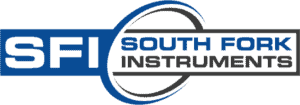Machines for mixing and delivering two-part (or more) chemicals for paint and adhesive coatings in industrial manufacturing plants must be accurate and reliable if the quality of the final product is to be maintained. High performance pumps are used to combine various chemicals in a predetermined mix ratio that are then delivered directly to the production line. Any unintended or unnoticed change in the proportioning of these chemicals being mixed can have a large impact and be very expensive in terms of rejected or off-spec product that often cannot be reworked.
Manufacturing plants have limited space, resulting in the installation of gear meters with small footprints which quickly lose accuracy due to wear and tear.

While metering pumps are generally very reliable—and their throughput is well correlated to their speed of operation—it is common practice to fit a flow meter in line with them to provide flow rate feedback. This is done to confirm that the desired amount of material is delivered, as over time pumps will wear and their delivery versus speed will change slightly. The flow meter also provides an independent indication should there be an issue, such as blockage or leakage, in the flow line.
In any manufacturing facility, factory floor real estate must be maximized in terms of the final product(s) output potential. To meet this goal, machinery is designed to be compact, and paint and adhesive preparation machines are no exception. Often purchased in skid form from specialist suppliers, a great deal of piping and components are crammed into a small space and when it comes to flow meters, those that are small, handle high viscosity liquids and do not require long upstream/downstream straight runs are greatly preferred. Gear meters have been the meter of choice for many of these machines in part because of their ability to handle high pressures, but also because they meet these requirements while having reasonable accuracy. The downside of using gear meters is that they are mechanical devices and as such, are affected by the same issues as metering pumps. Blockage, leakage and mechanical wear will, over time, cause measurement drift.
Gear meters give good performance when new, but they must be maintained if they are to continue to provide that same performance over long periods.

Large pieces of debris can cause the meter to seize and stop working altogether. Foreign material can be introduced into a meter in a variety of ways: a quality issue from the fluid supplier, an upstream component—such as another pump—failing, or as a result of an unrelated repair task in upstream piping. Whatever the source of the foreign material, whenever such a problem occurs, the meter must be disassembled, and its internals inspected for damage.
Should “chips and dings” or score marks in the gearing be observed, then the rotors must be replaced to ensure integrity and accuracy. Also important is to ensure that the measuring chamber walls have not been damaged as this may further contribute to operation issues. In almost all instances, damage to the measuring chamber will require replacement of the flow meter. While the meter is being repaired, the production line is down.
Even when gear meters are not exposed to foreign material, over time, bearings can fail and rotors potentially crack. Unless the failure is catastrophic, the only indicator of a problem would be a change in tone or an increase in noise level when the meter is operating.
Compact Coriolis meters are a superior modern alternative to gear meters in applications where space is at a premium.

But the adoption of Coriolis meters by fluid handling and mixing equipment manufacturers has been limited, in part, by their pressure handling capabilities and perceptions that they are high cost.
Newer Coriolis models, like the Rheonik L series sensors feature high pressure (up to 20,000psi) and high temperature (up to 350°C) variants, greatly increasing the applicability of the technology in industrial applications. Machine and skid builders can use these high-performance, low-maintenance units with their multi-functional performance to enhance value to their customers. For corrosive material measurement applications, Rheonik Coriolis meters can be configured with a wide variety of exotic wetted materials more cost effectively than gear meters, and Coriolis meters have the distinct advantage of being able to measure both viscous and non-viscous materials to the same accuracy.
With the availability of smaller, more compact Coriolis flow meter bodies and small remote electronic units suitable for DIN rail mounting, the advantages of using Coriolis meters as an embedded component in paint and adhesive mixing equipment can be easily realized. Coriolis meters provide increased value to produced goods through increased quality and consistency while saving cost through higher machinery uptime and lower maintenance requirements while their incredibly small footprint allows for even more compact process skids, maximizing the use of available factory floor space.

